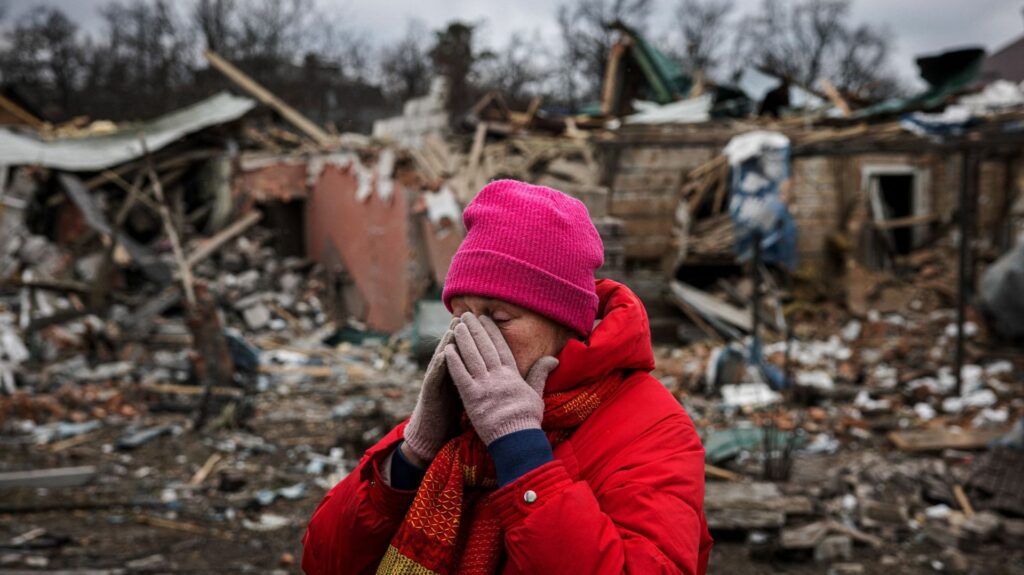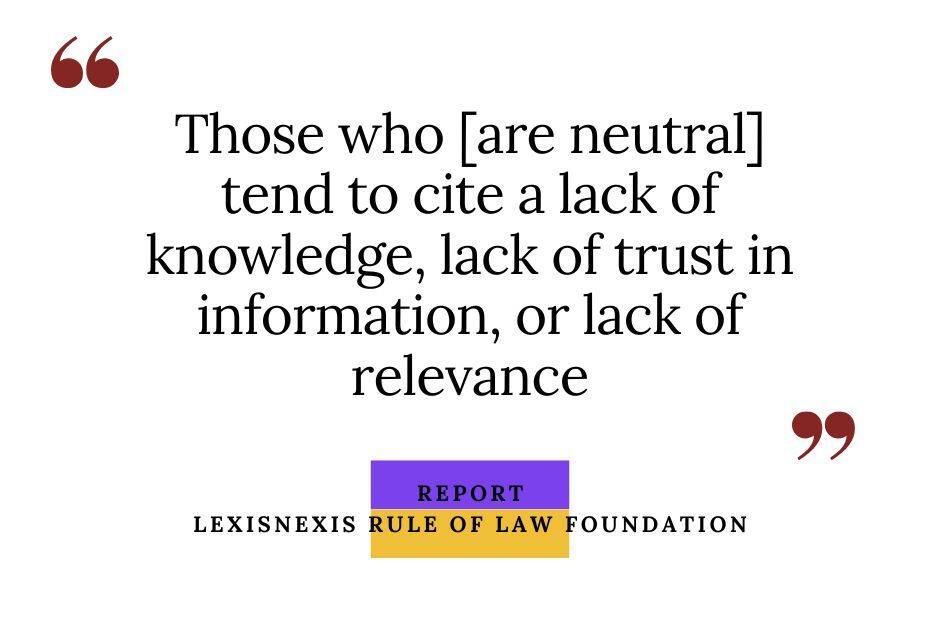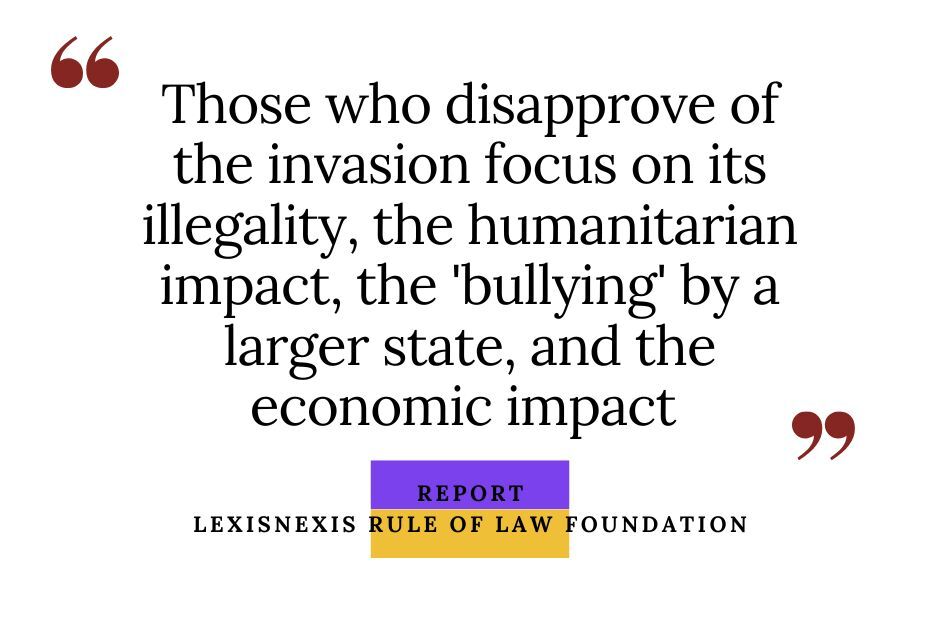Many regions across the world are becoming increasingly ambivalent towards Russia’s invasion of Ukraine, a global study conducted by data analytics giant LexisNexis' Rule of Law Foundation has revealed. Russia is the only country in the world where the majority of the population (62%) approve of the invasion.
The survey interviewed around 16,000 people from 177 countries across the world. Data was collected in two waves, at the start of the war (February to June 2022) and from December 2022 to February 2023.
The results show that especially in Western nations, ambivalence is growing, especially in North America. In the USA, 31% of respondents are now ambivalent and 10% even support Russia's war.
Growing apathy
While the number of those in favour of the war has remained stable (10%), respondents stating their opposition to Russia’s war dropped from 71% to 58% between the start of the war and the start of 2023. Those with “no opinion” has increased from 19% to 33%.
Likewise, ambivalence is growing in Eastern Asia (25% to 38%), Eastern Europe (14% to 24%), Central America (22% to 29%), Northern Europe (8% to 15%), West Asia (17% to 23%), South Asia (33% to 39%) and South America (17% to 20%).
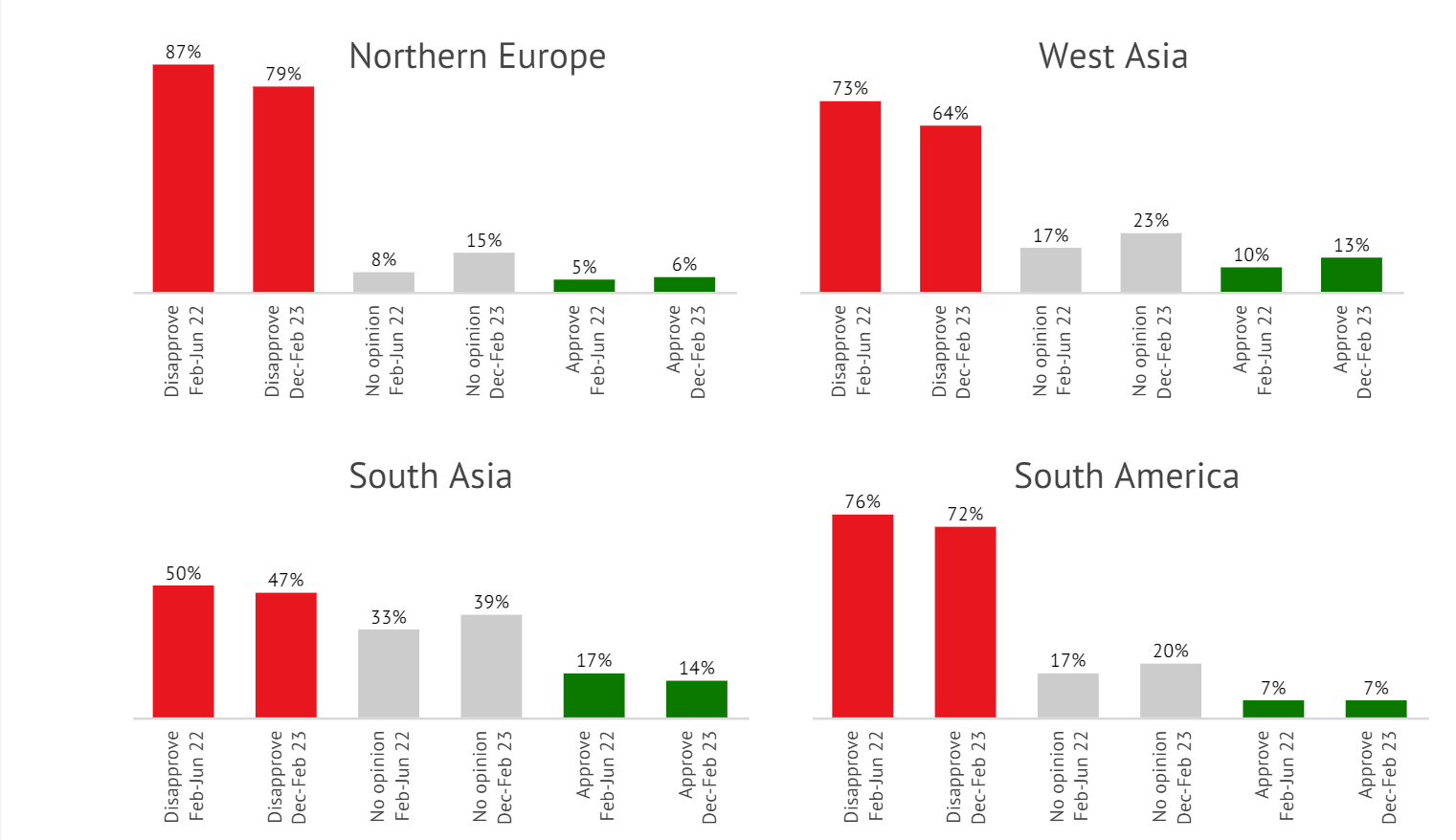
Credit: LexisNexis Rule of Law Foundation
“The greatest level of disapproval comes from Western Europe, as you might expect. The further east you go around the world, the greater the apathy towards the war, until you get to the Far East and nobody's really bothered about it,” explained Ian McDougall, President of the LexisNexis Rule of Law Foundation.
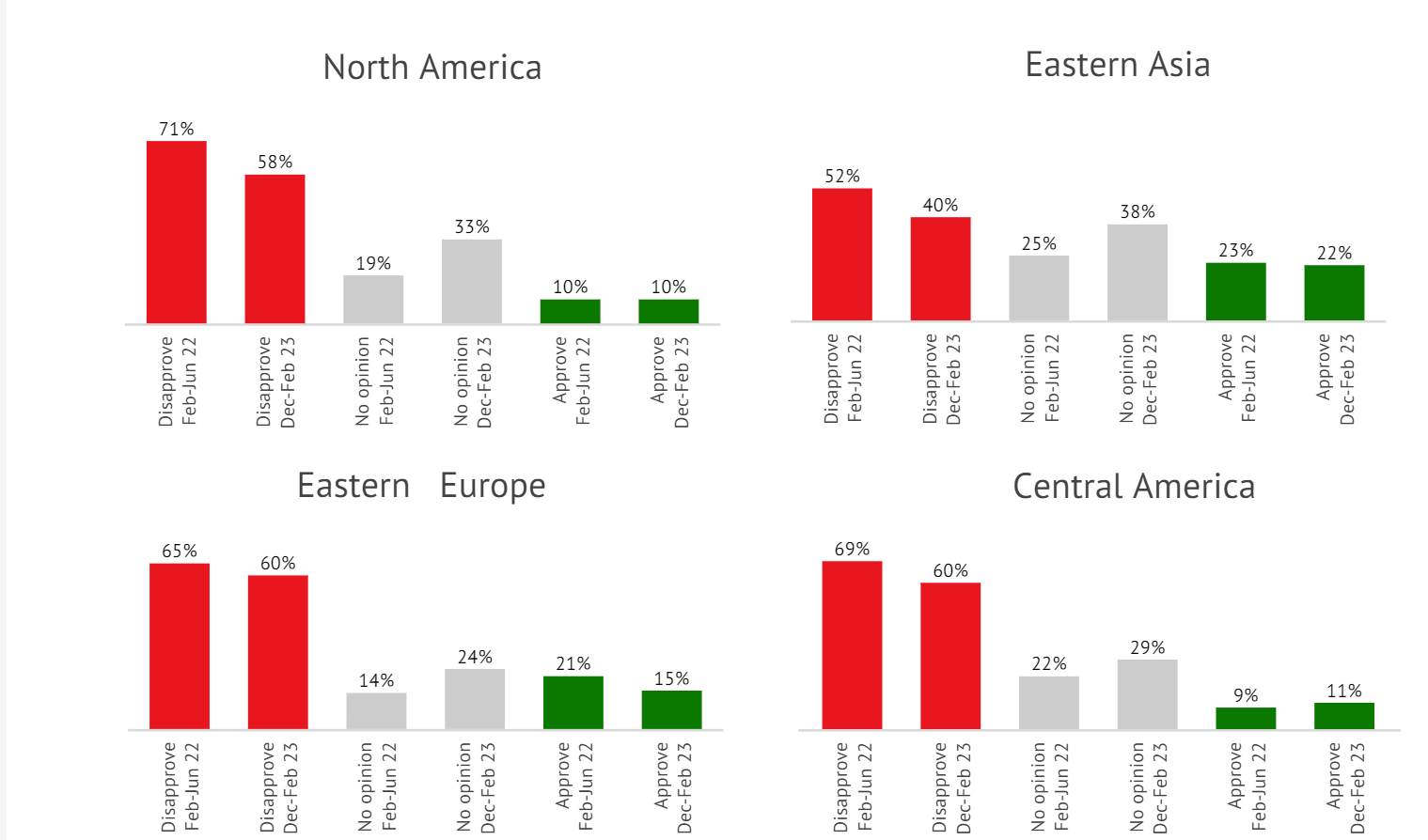
Credit: LexisNexis Rule of Law Foundation
Respondents most commonly answered “no opinion” due to a lack of knowledge about the war, countervailing opinions, or general disinterest. Outside Russia, support for Putin’s offensive has grown in Oceania (3% to 14%) and Southern Europe (5% to 13%).
“It’s a deteriorating level of disapproval and a big growing band in the middle. We tend not to think about the war from one week to the next anymore,” McDougall noted. “Apathy and fatigue with the issue is growing. We have to work much harder to explain to people why that high principle actually matters to them.”
McDougall likens this growing apathy to the appeasement policy of Neville Chamberlain towards Nazi Germany. Just as the former British leader said in 1938 during the Sudetenland crisis, the Ukraine crisis is to many a “quarrel in a faraway country, between people about whom we know nothing.”
In developing or authoritarian countries, where global politics is typically at the bottom of citizens’ priorities, apathy is fuelled by a general disinterest or even conflicting narratives in local media. Nearly 61% of people from Côte d'Ivoire are ambivalent, 47% in Kazakhstan, 46% in China, and 43% in Morocco.
“The information I receive every day is difficult to distinguish between true and false,” says one Chinese respondent. “Both sides are wrong and the civilian population suffers,” a Kazakh woman said.
Supporting Putin
Levels of support are often highest in countries with close political ties to Russia, high levels of Russian investment, or significant media influence.
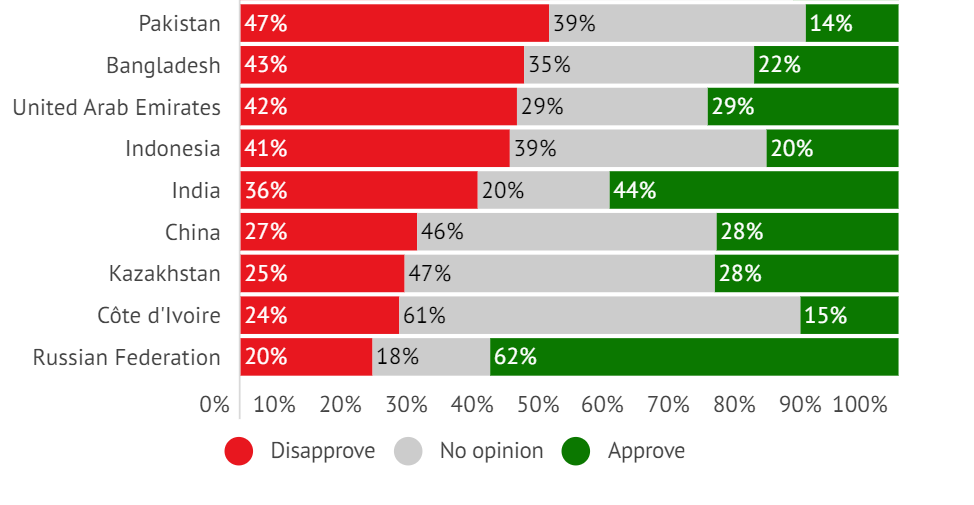
Credit: LexisNexis Rule of Law Foundation.
In India, 44% of respondents approved of the war when surveyed in recent months. There has been a significant rapprochement between the two countries over the past few years. Both members of the BRICS group and cooperate economically and militarily. India is not party to international sanctions on Russia.
“I support Indian and Russian relationship”, “They protect their country from other country”, “Russia’s stop was necessary because Ukraine was adamant with joining NATO,” Indian respondents said.
On the African continent, 30% of Kenyans are in favour of Russia’s war against Ukraine. Russia has invested heavily in media influence operations in Africa. Lots of African countries have equally suffered massive economic damages as a result of the war, encouraging polarised views.
Related News
- One year on Friday since Russia’s invasion of Ukraine: What's happening in Brussels?
- 'Give them what they need to win': NATO to help Ukraine procure arms
Yet despite regional patches of increased support for Russia’s attack, the data shows that the majority of respondents were against the war. All the same, opposition to the war is fading at an accelerating rate.
“The results show that the majority of the world outside of Russia remains disapproving of the invasion... and a growing exhaustion among many as the invasion reaches the one-year anniversary,” McDougall noted.
The LexisNexis Rule of Law Foundation “strongly condemns” the war and works to promote the rule of law across the world. The foundation also develops tools to help Ukrainians report work crimes, as well as providing free legal resources for Ukrainian lawyers and companies.
The foundation’s president states that the growing global ambivalence “reminds us that the challenge to advance the Rule of Law is not a 12 month, or 12-year project. It is a never-ending challenge to constantly remind everyone why the rule of law matters.”

